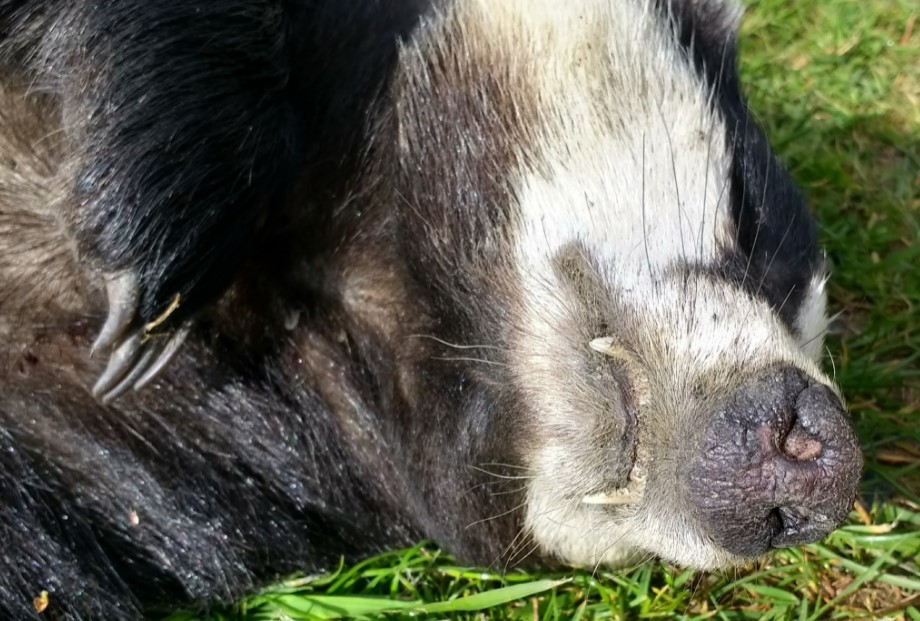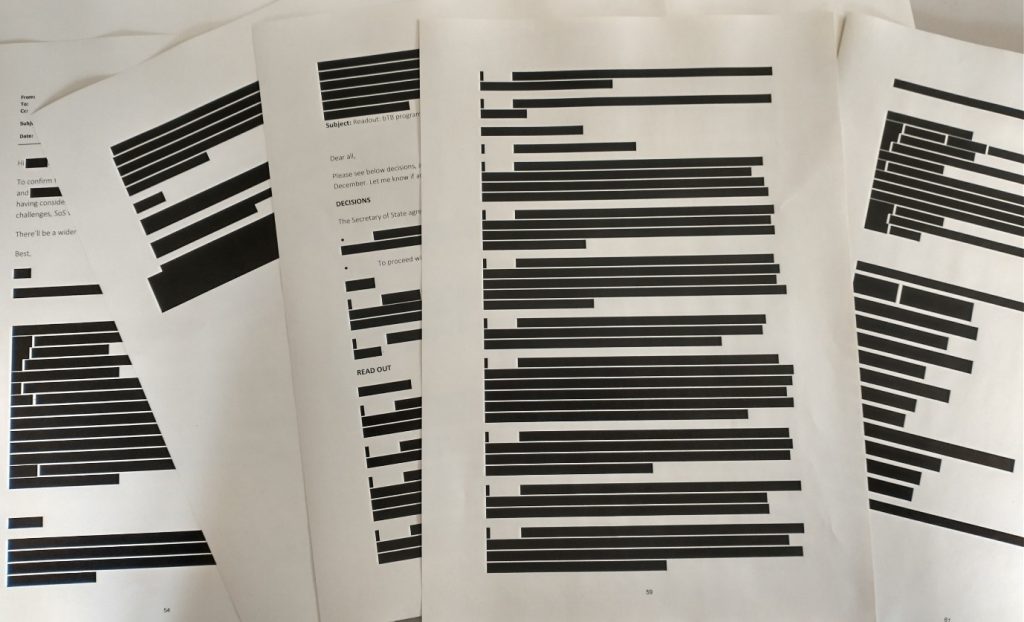Did Defra breach its ‘duty of candour’ to the courts ?

On Wednesday 13th April, the Rt. Hon. Lady Justice Simler granted permission for the High Court decision in Langton v Defra (case ref: CO/2062/2020) to be challenged in the Court of Appeal. The High Court case had been dismissed on 9 August 2021 by the Honourable Justice Griffiths. The case concerned an alleged failure of the Secretary of State for the Environment Food and Rural Affairs (S/S) to have regard to the implications for biodiversity of ecosystem disruption following badger culling, in accordance with the duty imposed on ministers and public bodies under Section 40(1) of the NERC Act (2006), before making his decision to continue badger culling under the ‘Next Steps’ policy.
It should be noted that previous challenges brought by Langton in 2017 and 2018 repeatedly found government and government agencies in breach of duties related to the assessment of badger culling impacts on designated nature conservation sites and associated protected species. In the present case, it is argued that the NERC Act obligations require that the impact of badger culling across the wider countryside and on the broader and larger biodiversity resource within it must also be assessed, including by the Secretary of State, but simply hadn’t been. The Government argued in the first instance that the Secretary of State wasn’t subject to the duty at all, or that the duty was in any event covered by the assessments carried out by Natural England in the course of issuing badger licences (the same ones the earlier cases had previously convinced the courts were defective), notwithstanding that these only claimed to consider impacts on designated nature conservation sites and related land.
Last Thursday 28th April, Justice Simler confirmed that the appeal case had been expedited to June or July 2022, giving notice of a hearing in the coming weeks. This appeared to precipitate a rapid pre-prepared action from Defra that same day. They sent Mr Langton’s legal team a suite of new documents (including a mass of heavily redacted emails) showing that in October 2021 Defra had placed in front of the then Secretary of State George Eustice a brief paper exercise, summarizing their opinion on the wider biodiversity effects from badger culling, and that he had been asked to reconsider his decision to adopt ‘Next Steps’ in the light of that information.
It is very difficult to read this other than as recognition by Government that the NERC Act S40 duty:
a) did (and does) apply to the Secretary of State (despite their arguing in front of Justice Griffiths that it didn’t),
b) that it hadn’t been considered or discharged by the Secretary of State prior to the adoption of Next Steps (as argued by Langton and his team) and,
c) that the Government was concerned that it may not be possible to defend this position upon further review by the Court of Appeal.
The real matter of concern here is not so much that the Government and its agencies exercised a volte-face and sought to remedy the legal error, but that they did so in secret, without informing the court, and in a situation where the case was still ‘live’. Our legal team has raised this issue with the GLD in correspondence copied to the Court as a breach of a basic tenet of legal protocol – the ‘duty of candour’ – which requires that the courts be informed when circumstances have changed or decisions have been taken (or re-taken) that have a bearing on a live case. Both the court and the claimants legal team should have been informed of the fact of the Secretary of State’s reconsideration when it happened in December 2021. The fact that this secret Ministerial briefing was only revealed after the Court granted permission for the appeal is extremely concerning and begs the question whether it would ever have come to light at all had that permission not been granted?

While it is not possible to comment of the quality and coverage of the new Defra material presently for legal reasons, it is sufficient to say that nothing has changed regarding the absence of any proper research by the Government into the collateral effects on biodiversity of badger culling. There remains an overarching need for extensive baseline research and data on the likely effects of predator removal, increases and perturbation in wildlife communities following ecological disruption on nature conservation interests. The research the Government seeks to rely on, to advance the premise that there are no meaningful side effects on biodiversity, remains scant to the point of being meaningless.
Where does this leave us? Plainly the Government is scratching around to avoid the embarrassment of having the 2020 “Next Steps” policy quashed.
And it will no doubt seek to rely on what is called a ‘no difference’ defence it has sprung as a ‘get out of jail free’ card whenever procedural deficiencies and oversights have been exposed in previous eco-impact claims. Defra’s argument in essence, is that even if the Secretary of State had complied with the duty, he would have come to the same decision. There must come a point where the elasticity in that defence and its ability to cover and excuse all failures at departmental and ministerial level becomes fatigued. But legally speaking, whether what Defra has done behind closed doors may be sufficient for the quashing of the policy will be determined by the Court when it hears the case. In our view, allowing badger culling to carry on in 2022 without revising the policy to address these very serious and wide-ranging biodiversity impact concerns is simply not tenable.
From a wider UK nature conservation perspective, it is very important that the case should continue, to ensure that ignoring of the NERC Act 2006 in decision making by government bodies is not allowed to become an accepted standard, and to get that confirmed by a Court judgment if Defra are not willing to concede it right away. In other words, the prospect that we could overturn the (we say perverse) ruling of Justice Griffiths in July last year that environment ministers are exempt from considering that part of the environment called ‘biodiversity’ when making decisions, is worth pursuing for many reasons.
If successful, the case could also have the effect of forcing Natural England to reconsider whether they are similarly failing to comply with what the duty demands in artificially restricting their considerations just to designated sites. It would bring into sharp focus the fact that the level of information they rely upon for impact assessment and to inform basic provisions for protection, is inadequate. Impacts are guessed or assumed because there is no background information to inform them beyond speculation, meaningless analyses of borrowed, coarse-grained datasets and a near total absence of monitoring, the lifeblood of real understanding.
These developments merely serve to reinforce the determination to halt badger culling. In recent days legal letters have been sent to Defra and Natural England asking them to stop badger culling in 2022 because of the current peer-reviewed scientific evidence that it has not worked.
So please consider supporting the Crowd Fund linked below. If everyone chips in we can spread the load and gain access to justice for badgers and all our wildlife and countryside.
Thanks you for your support. We are the Badger Crowd. We stand up for badgers.
If you can, please donate here:
Donate
Thank you.
Discover more from The Badger Crowd - standing up for badgers
Subscribe to get the latest posts sent to your email.

